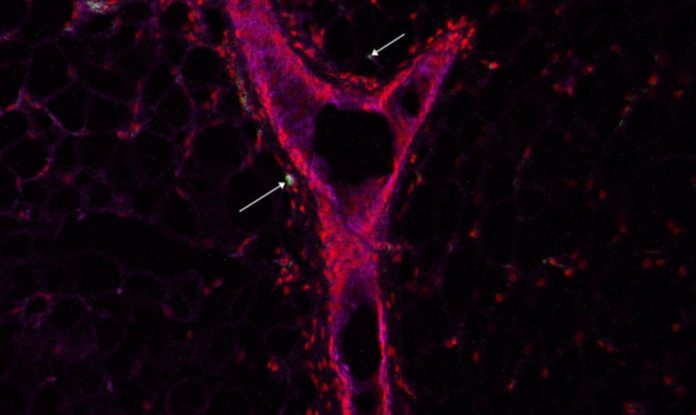Pregnancy can cut the risk of breast cancer in a new way
Your body’s immune system is always on the lookout for things that could make you sick. Immune cells may also be called in to help deal with a possible problem.
CSHL Associate Professor Camila dos Santos’ lab found that after having a baby, breast cells call in immune system reinforcements called Natural Killer T (NKT) cells to keep tumors from growing. This helps keep breasts healthy.
This study shows that pregnancy can cut the risk of breast cancer in a new way.
There are two levels of defense in the immune system. The first is the innate response, in which immune cells assault any foreign substance they come across. The second type of response is the adaptive response, which consists of immune cells that respond particularly to calls for assistance from specific molecules.
NKT cells are a group of cells that are found everywhere in the body and can play a role in both responses.
Amritha Varshini Hanasoge Somasundara, a graduate student at CSHL, says that after having a baby:
“There is an increase in this specific [NKT] cell type, and only in the mammary gland. We don’t see the expansion everywhere else in the body, even though NKT cells are present everywhere else in the body.”
The researchers wanted to determine what the increased number of NKT cells in the breast tissue were doing. Hanasoge observed that following pregnancy, breast epithelial cells that line lactation ducts in mice generate a unique protein called CD1d.
The researchers detected no rise in NKT cells in the tissue if the cells did not include CD1d; the epithelial cells were malignant and developed into tumors.
Hanasoge and dos Santos believe that CD1d molecules recruit NKT cells to monitor epithelial cells in breast tissue after pregnancy. If they develop cancer, NKT cells can promptly eliminate them, preventing tumor growth.
The team’s findings show a new way that pregnancy and the immune system work together to keep breast cancer at bay.
The dos Santos lab wants to know how these findings can be applied to people and what other factors could be at play, such as aging and menopause, which both raise the risk of breast cancer.
The author adds:
“One of the hypotheses that we are working on now is: do pregnancies later on in life bring in the same expansion of the same subtypes of immune cells as pregnancies that took place early in life?.”
Source: 10.1016/j.celrep.2021.110099
Image Credit: HANASOGE SOMASUNDARA/DOS SANTOS LAB/CSHL, 2021
You were reading: New research shows: pregnancy can cut the risk of breast cancer by a lot
